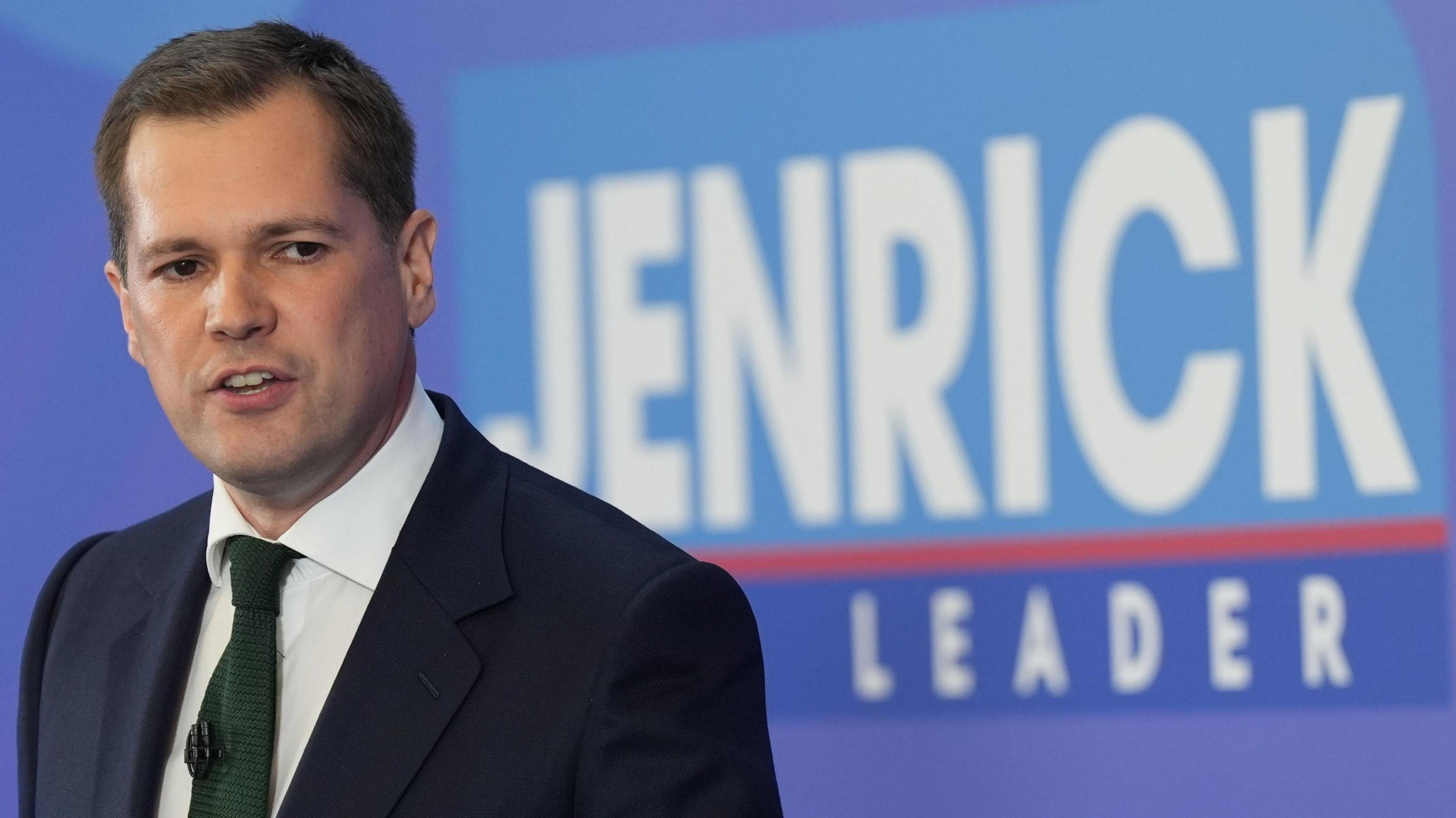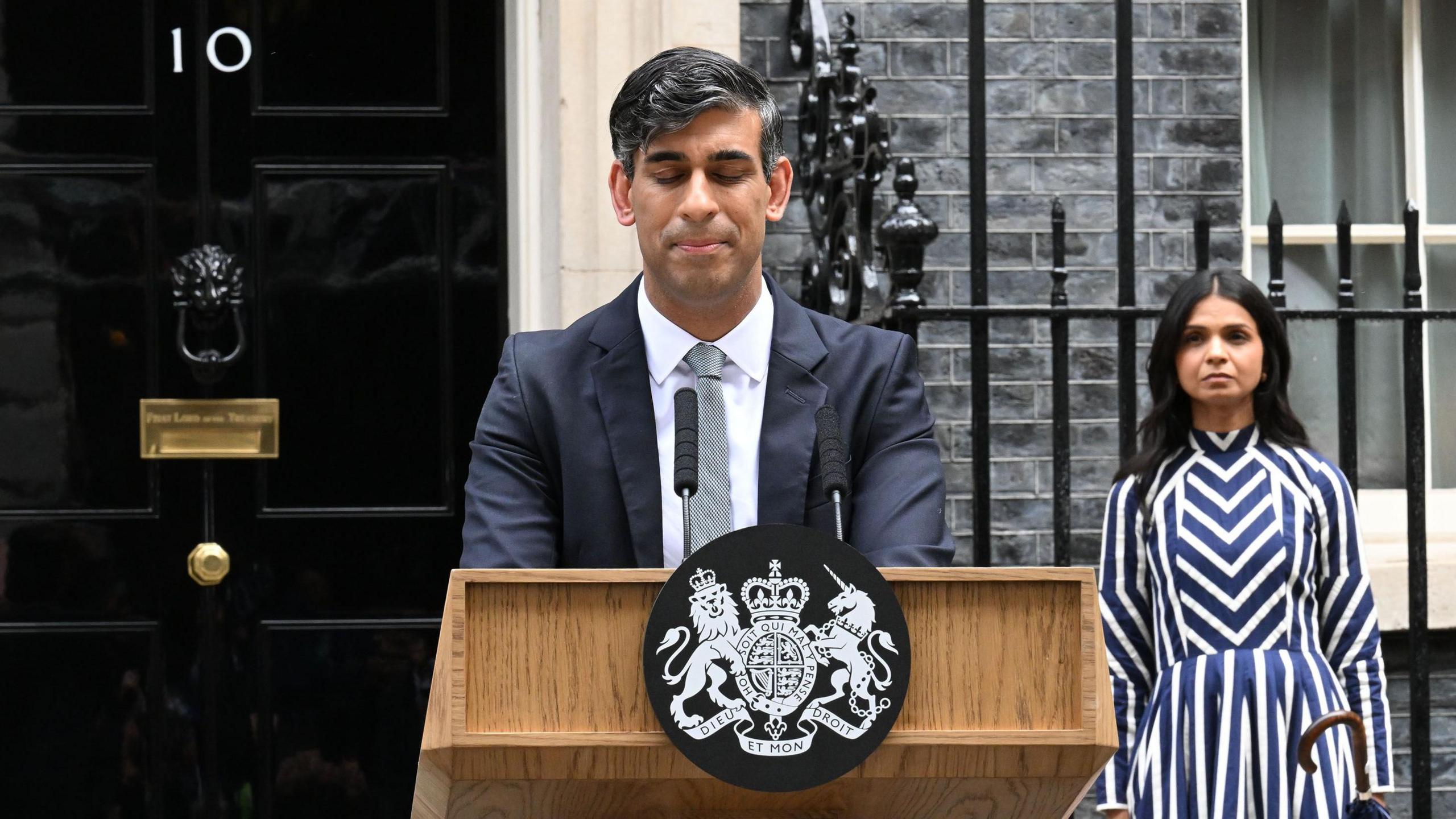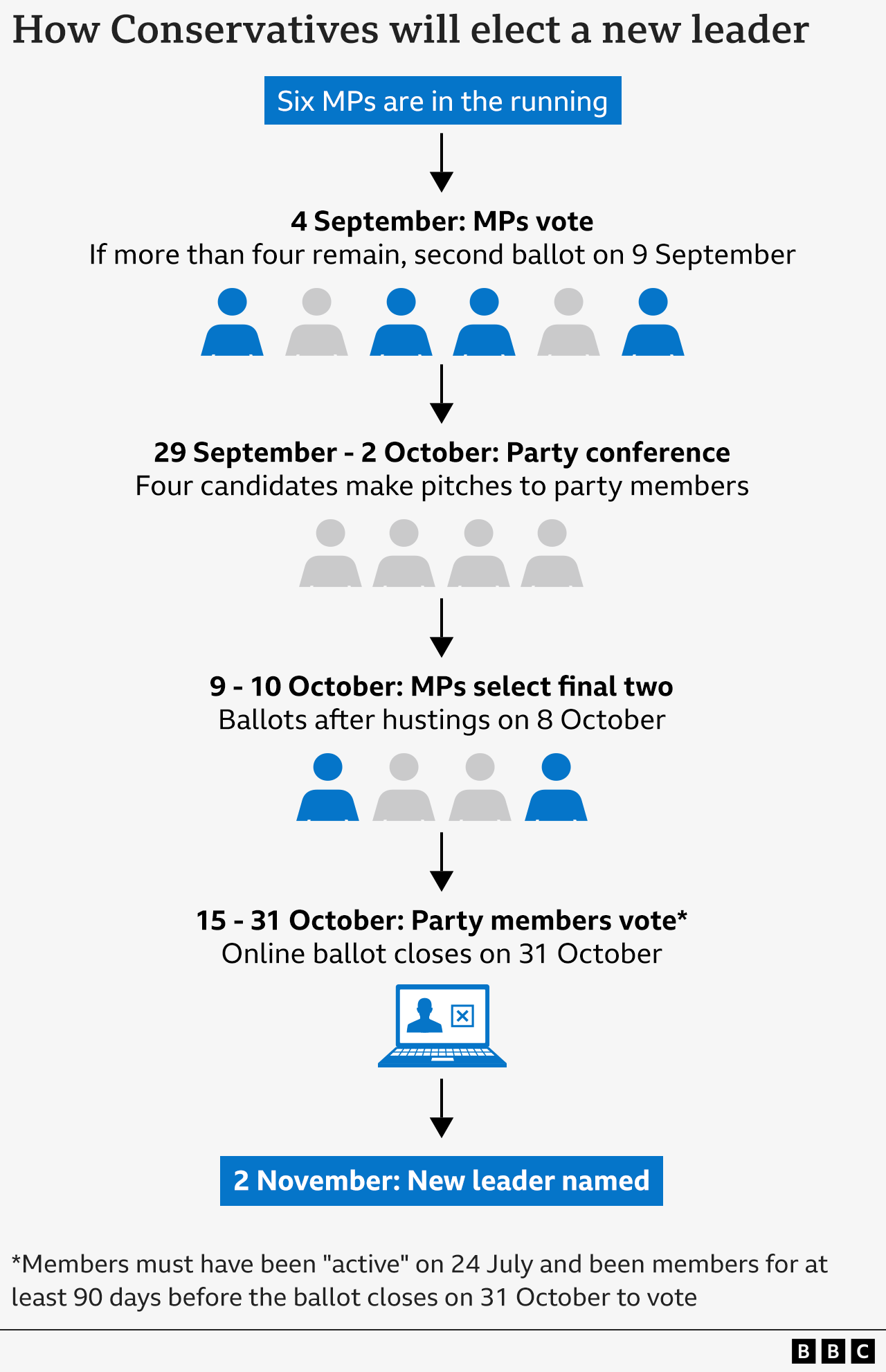Tories can win next election, says leadership hopeful Jenrick

- Published
The Conservatives can win the next general election but need to "confront some hard truths", Robert Jenrick has said as he launched his campaign to replace Rishi Sunak as the party's leader.
Addressing supporters in his Newark constituency, he said the party should reject "defeatism" but also needed to be "grounded in realism".
He argued that the principal reason the Conservatives lost the general election was because it "broke our promises" to reduce immigration.
Mr Jenrick is one of six Conservatives who have entered the race.
The other leadership hopefuls are: Kemi Badenoch, James Cleverly, Dame Priti Patel, Mel Stride and Tom Tugendhat.
In order to stand in the race, the leadership hopefuls had to get the backing of at least 10 Conservative MPs.
In September, Tory MPs will whittle down the number of candidates from six to four, who will then make their pitch to members at the party's conference in Birmingham.
In a series of further ballots, the MPs will then narrow the field to a final two contenders, with party members then choosing the winner.
The online vote will end on 31 October, with the result announced two days later on 2 November.
How will the Conservatives choose their new leader?
- Published22 October 2024
Who could replace Rishi Sunak as party leader?
- Published22 October 2024
Which voters should the Tories go after now?
- Published12 July 2024
For most of his parliamentary career, Mr Jenrick had been seen as a centrist figure and a close ally of Rishi Sunak.
But he dramatically resigned as a home office minister in December 2023 in protest at the government's approach to tackling illegal immigration.
He has gained support for his leadership bid from right-wing supporters of Suella Braverman, including Sir John Hayes who was at the launch.
Ms Braverman had been expected to run for the leadership herself but said there was "no point" because "most of the MPs disagreed" with her.

Rishi Sunak has said he will stay on as leader until a replacement is chosen
Mr Jenrick said the Conservatives, who last month fell to their worst election defeat ever, had “a mountain to climb”.
During the election, Mr Jenrick held on to Newark but saw his majority slashed from around 20,000 to less than 4,000.
Speaking to supporters in his Newark constituency, he said: "Nothing in politics is certain. Just as there are no final victories, there are no final defeats.
"Enough of defeatism. We can win."
However, he warned that the party need to “change a lot, otherwise there is no future for us".
In addition to blaming the defeat on a failure to control immigration, he also said the party had "lost our reputation for sound management", pointing to low growth and high taxation.
During his speech he praised David Cameron for winning young voters, turning around the economy, and improving schools. He also praised Boris Johnson for “getting Brexit done”.
He spoke of building more homes to win back young voters, and making sure the NHS works for patients, describing it as “a public service, not a religion.”
He said previous Conservative governments had "shirked difficult decisions" on the NHS out of a fear of attacks from their opponents.
Reflecting on his time in government, Mr Jenrick said he had come to believe that the system of government in the country was "completely broken" and "contributing to our national decline".
He said Labour would not be able to change things and the Conservative's were "our country's best hope".
Answering questions from journalists, he said he would be willing to leave the European Court of Human Rights and that net migration should be capped at a level decided by Parliament, which he believed should be “in the tens of thousands”.
He said that if he became prime minister he would "hope" to bring back the Rwanda scheme, scrapped by the new Labour government but added that was "four or five years away".
Mr Jenrick was introduced by former minister Esther McVey, who described him as a “great media performer and a communicator.”
She said he could turn the Conservative Party’s fortunes around by “persuading the public not provoking them".
